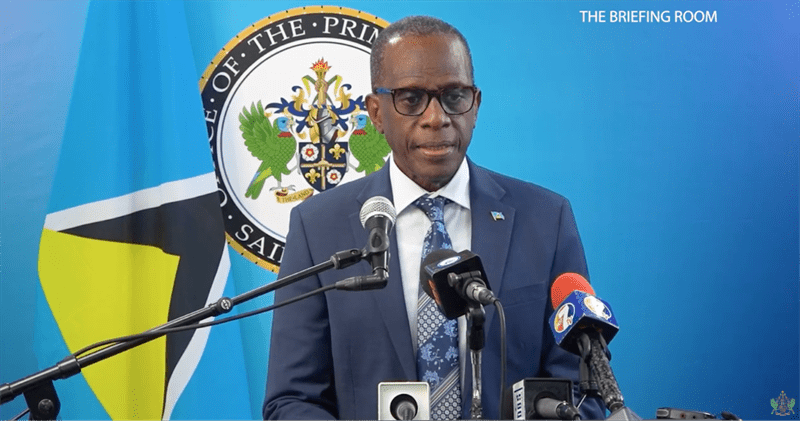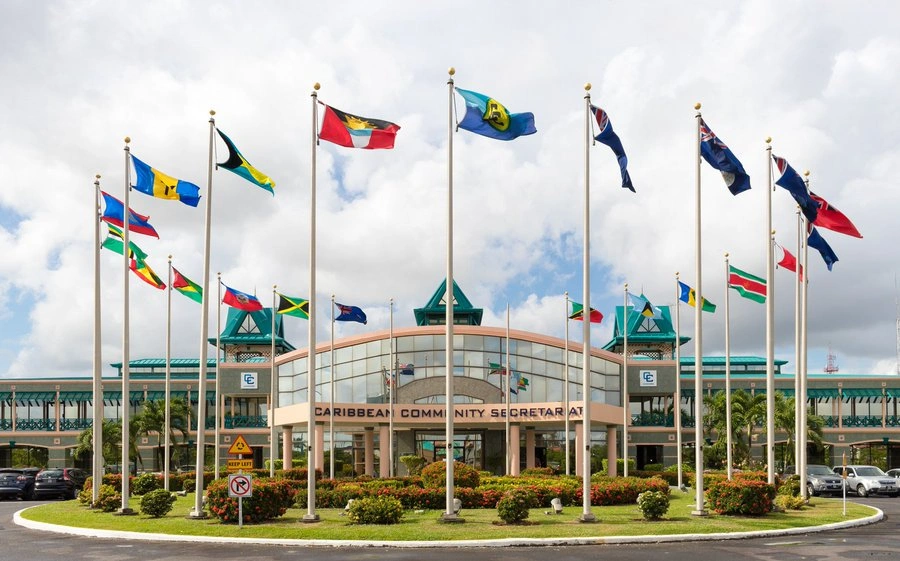CASTRIES, Saint Lucia — The Saint Lucian government has launched a dual-pronged task force to mitigate potential fallout from recent U.S. policy changes, including heightened tariffs and stricter immigration enforcement, Prime Minister Philip J. Pierre announced Sunday, framing the move as critical to shielding the island’s economy and citizens from external shocks.
The initiative, approved by the Cabinet of Ministers, reflects growing anxiety among Caribbean nations over the ripple effects of U.S. domestic decisions on small, import-dependent economies. With Saint Lucia sourcing over 60% of its food and goods from the U.S., Prime Minister Pierre warned that American tariffs could exacerbate inflation and deepen food insecurity for the island’s 180,000 residents.
Task Forces Tackle Tariffs and Deportation Threats
Two specialized teams will spearhead the response: the tariff task force, led by Commerce Minister Emma Hippolyte, will analyze trade impacts and strategize cost containment, while the immigration task force, overseen by Minister Jeremiah Norbert, will address concerns over potential deportations of Saint Lucians and other Caribbean nationals from the U.S.
“What happens outside Saint Lucia directly impacts Saint Lucia,” Pierre said during a press briefing at his official residence. “We are a small economy, vulnerable to global shifts. These U.S. policies threaten our stability—particularly through rising food costs.”
Food Security Push Amid Reliance on Imports
The prime minister underscored the urgency of reducing dependence on foreign imports, urging citizens to “look inward” by expanding local agriculture. Saint Lucia currently imports roughly $200 million worth of goods annually, including staples like rice, poultry, and cereals.
“The best defense is eating what we grow,” Pierre said, referencing ongoing efforts to revitalize cassava, dasheen, and breadfruit production. His administration has pledged $10 million in farm subsidies and land grants this fiscal year, though critics argue progress has been slow.
Collaboration with Importers
In a bid to cushion immediate price hikes, the government has invited importers to collaborate with the tariff task force. “We need private sector partnership to manage this transition,” Hippolyte said in a statement, noting that “strategic stockpiling” of key goods is under discussion.
The move comes as U.S. deportations of Caribbean nationals rise, with over 500 Saint Lucians repatriated in 2024—a 30% increase from the previous year. Minister Norbert’s team is drafting contingency plans to support returnees, including housing and job training programs, though details remain scarce.
Regional Implications
Saint Lucia’s proactive stance mirrors concerns across the Caribbean, where leaders have long criticized U.S. immigration and trade policies as destabilizing. Earlier this week, the Caribbean Community (CARICOM) issued a rare joint statement urging Washington to consider the “disproportionate burden” of deportation surges on small islands.
Economists warn that U.S. tariffs could inflame already soaring inflation in Saint Lucia, which hit 8.5% in 2024. “Every percentage point increase in import costs translates to higher poverty rates here,” said Marcia Ferdinand, an economist at the University of the West Indies. “This task force is a start, but long-term solutions require systemic change.”
As global tensions reshape trade dynamics, Saint Lucia’s gamble on self-reliance faces its first test. For now, the nation’s motto—“The Land, The People, The Light”—rings with renewed urgency.



